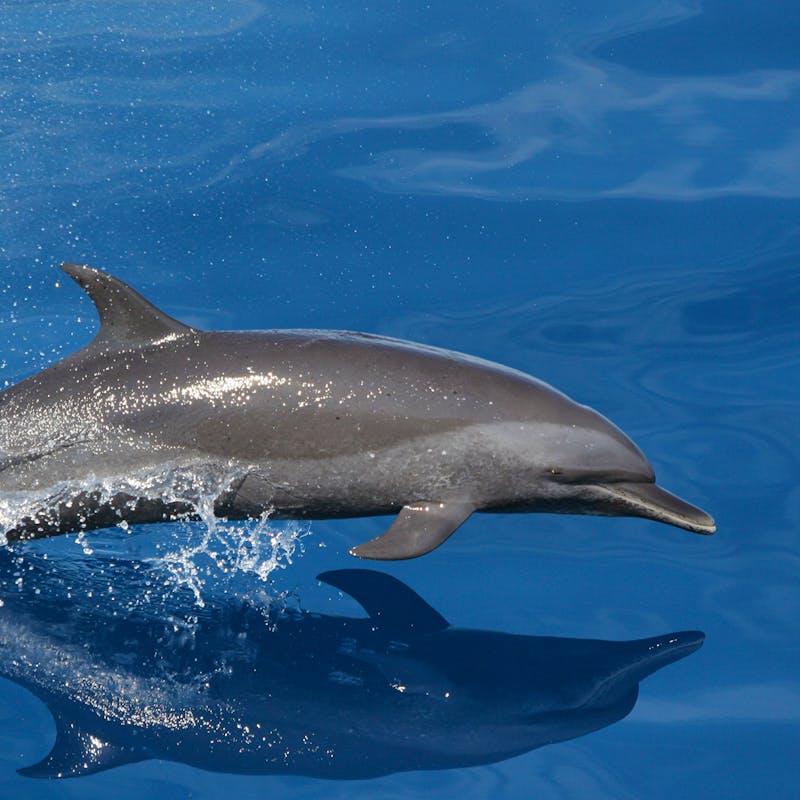
The turtle makes its way back to the Atlantic. Photo courtesy State Park Ranger Keith Betts
What should have been a routine patrol in Delaware’s Cape Henlopen State Park last week instead became a walk to remember when park ranger Curtis Reynolds stumbled upon the state’s first-ever nesting sea turtle. It was just before dawn when the four-foot-long female turtle crawled onto the beach, dug a hole with its flippers and laid 194 eggs before returning to Atlantic waters.
A sea turtle found nesting so far north is unusual enough. But the incident soon turned out to be even more incredible than first believed. According to marine experts, the female sea turtle–previously thought to be a loggerhead turtle–is actually a green sea turtle, a species most often found in the tropical waters of Florida and the Caribbean. While loggerheads will sometimes nest as far north as the barrier islands of Virginia, green turtle nests have been documented only as far north as North Carolina. This female had traveled quite a distance before crawling up on Delaware shores.
According to the Delaware News-Journal, the eggs were buried as deep as 28 inches, but too close to the tide for the comfort of Suzanne Thurman, executive director of the MERR Institute, a nonprofit that responds to marine animal strandings and rescues in Delaware. At her request, and with the permission of the U.S. Fish and Wildlife Service, the eggs were carefully moved about 100 yards away to a higher area and reburied. Although rescue crews are working to keep people away to protect the eggs, Defenders’ Elizabeth Fleming said that with about 60 days for the eggs to incubate before hatching, it’s unclear if they’ll survive the region’s cooling temperatures.
What could have brought this wayward turtle so far from home? Could warming ocean temperatures caused by climate change be responsible for this northern nest? We may not know the reason yet, but this anomaly reminds us that in an an uncertain future, wildlife is going to need all the help it can get.

- Green turtles are endangered in the U.S. Photo courtesy Andy Bruckner, NOAA

- Green turtles are endangered in the U.S. Photo courtesy Andy Bruckner, NOAA
You Can Help!
MERR is looking for volunteers to help monitor these eggs. If you’re interested in helping, call 302-228-5029.
Standing up for Sea Turtles:
Defenders is working to protect sea turtles from drowning in shrimping nets. Learn more about how an unregulated fishery threatens endangered turtles and what we’re doing to help.
Off-road vehicles can pose a grave danger to nesting sea turtles. See how Defenders is working to protect turtles from this threat at Cape Hatteras National Seashore.





Follow Defenders of Wildlife
facebook bluesky twitter instagram youtube tiktok threads linkedin